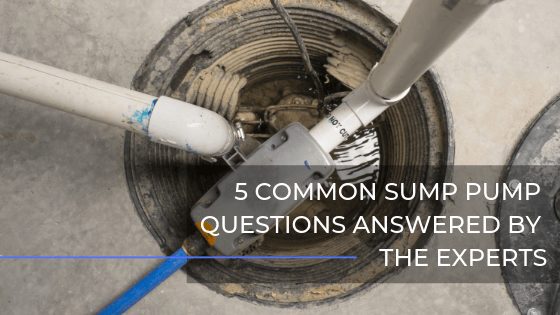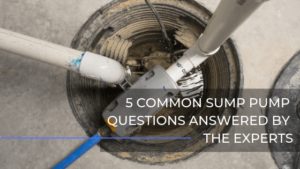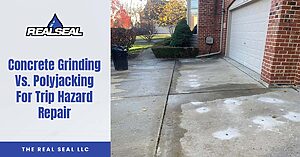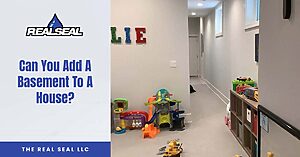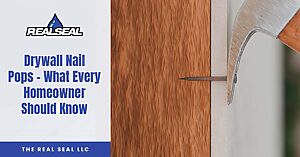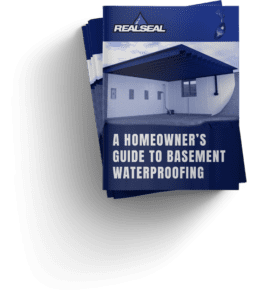Waterproofing your basement involves implementing numerous strategies to prevent standing water from wreaking havoc on your home. One of the most effective methods is a sump pump. We answer five common sump pump questions that homeowners typically ask when they’re first learning about basement waterproofing techniques.
1. Do I Need to Clean My Sump Pump?
While sump pumps don’t have filters, you’ll still need to clean their openings or screens at least every few months—lingering debris is certain to plug it up. Additionally, if necessary, oil the pump’s parts. By regularly cleaning your sump pump, you can ensure that water flows freely through it. Don’t forget to clean your backup pump, too!
2. How Do I Make Sure My Sump Pump Doesn’t Fail?
You can’t entirely prevent sump pump failure. However, to reduce the likelihood of failure, proper maintenance is key. If your sump pump doesn’t work correctly, adjust or repair it right away. Also, make sure the pump’s pipes are tightly fastened; this will help them effectively drain water away from your home.
3. How Often Should I Test My Sump Pump?
Every homeowner should test their home’s sump pump at least a few times a year. If you haven’t heard your pump run in a while, run a hose or pour a five-gallon bucket of water into the sump pit. If the sump pump activates, it should be in good shape.
4. Why Do I Need a Sump Pump?
A sump pump’s main purpose is to keep your basement dry. It removes excess moisture from your basement, thereby keeping your foundation free from water damage and protecting it from fungus, insects, mildew, and mold.
5. Why Do I Need a Backup Sump Pump?
A backup sump pump gives you peace of mind during a flood or flood-causing event. If your main pump fails, the rising water will turn on the backup pump. Your backup pump’s alarm will alert you when it takes over. If the primary pump breaks down, or if the electricity goes out, it’s a good idea to also have a battery backup. It will operate the pump for 12 to 24 hours. You can also look into this resource on how many sump pumps you need at a time.
We hope that we’ve answered some of your sump pump questions. If you still have lingering concerns, feel free to contact us.
